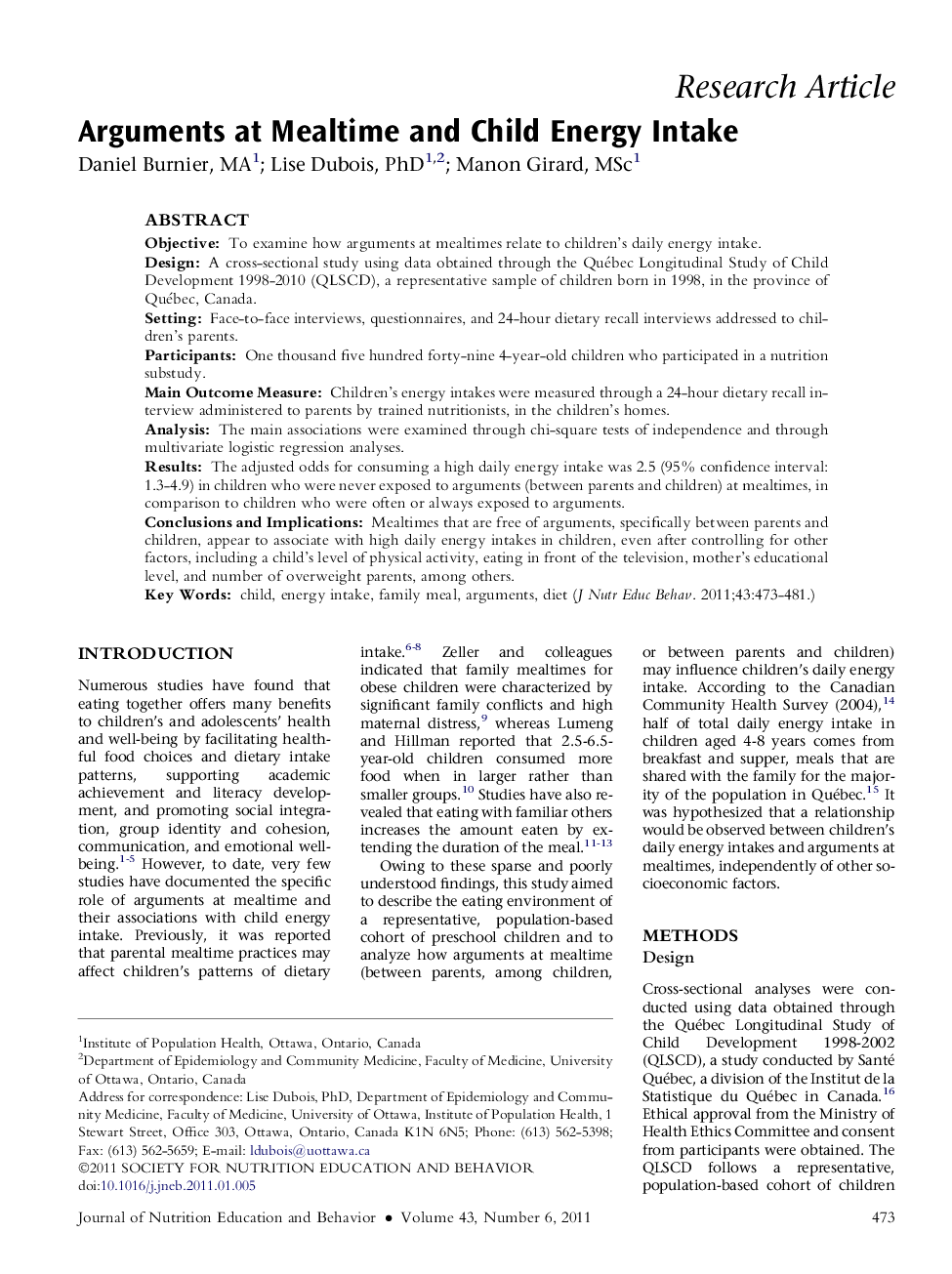| Article ID | Journal | Published Year | Pages | File Type |
|---|---|---|---|---|
| 361766 | Journal of Nutrition Education and Behavior | 2011 | 9 Pages |
ObjectiveTo examine how arguments at mealtimes relate to children’s daily energy intake.DesignA cross-sectional study using data obtained through the Québec Longitudinal Study of Child Development 1998-2010 (QLSCD), a representative sample of children born in 1998, in the province of Québec, Canada.SettingFace-to-face interviews, questionnaires, and 24-hour dietary recall interviews addressed to children’s parents.ParticipantsOne thousand five hundred forty-nine 4-year-old children who participated in a nutrition substudy.Main Outcome MeasureChildren’s energy intakes were measured through a 24-hour dietary recall interview administered to parents by trained nutritionists, in the children’s homes.AnalysisThe main associations were examined through chi-square tests of independence and through multivariate logistic regression analyses.ResultsThe adjusted odds for consuming a high daily energy intake was 2.5 (95% confidence interval: 1.3-4.9) in children who were never exposed to arguments (between parents and children) at mealtimes, in comparison to children who were often or always exposed to arguments.Conclusions and ImplicationsMealtimes that are free of arguments, specifically between parents and children, appear to associate with high daily energy intakes in children, even after controlling for other factors, including a child’s level of physical activity, eating in front of the television, mother’s educational level, and number of overweight parents, among others.
